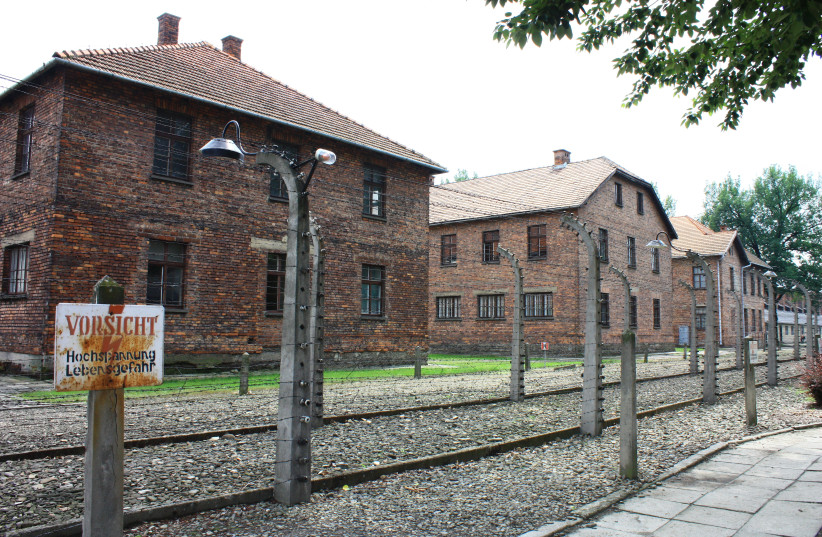Germans alone responsible for Holocaust, no Polish involvement – Former Polish PM says
Former Polish Prime Minister Mateusz Morawiecki has re-asserted that Germans alone were responsible for the Holocaust, urging correction of any claims of Polish involvement. In a strongly worded tweet, Morawiecki addressed ongoing controversies regarding Poland’s role in the Holocaust.
His statement, posted on his official X account, criticized what he called “nonsense” published by a historian in the English-language press, and emphasized Poland’s stance on Holocaust responsibility.
“When more nonsense from a historical dilettante with (unfortunately) an academic title appeared in the English-language Jewish Quarterly, it was the duty of every decent Pole to correct these falsehoods,” Morawiecki tweeted.
He further called on the Polish government and its leaders, including Prime Minister Donald Tusk, to address and refute claims about Poland’s co-responsibility for the Holocaust. “As a historian, I cannot remain indifferent to the continuous false claims of Mr. Grabowski,” he added, referring to the historian whose work sparked the controversy.
The Jewish Quarterly is an independent publication that has been cultivating high-standard literary journalism for nearly 70 years. Originally founded in the UK in 1953 by Jacob Sonntag, it focuses on exploring Jewish issues and broader cultural and political topics from a Jewish perspective. In 2021, the publication was relaunched by Australian publisher Morry Schwartz, making it accessible worldwide.

This tweet came in the wake of renewed debates over Poland’s controversial Holocaust law, which was passed in 2018. The law criminalized the attribution of Nazi crimes to the Polish nation, sparking an international outcry and straining Poland’s relations with Israel and Jewish organizations globally.
Although the penal provisions of the law were later removed, the debate over historical narratives continued to provoke strong reactions.
“The nonsense regarding any co-responsibility of the Polish nation for the Holocaust must end once and for all!” he declared, reinforcing his position that Poland and its citizens played a heroic role during this dark chapter of history.
He also emphasized, “Jews who survived the cataclysm of the German occupation survived thanks to Poles,” and noted the significance of the Righteous Among the Nations trees at Yad Vashem. “In the Garden of the Righteous at the Yad Vashem Institute, thousands of olive trees grow in memory of those who helped Jews during World War II. Check how many of them are dedicated to Polish citizens…”
Poland’s ongoing effort to counter claims of Polish complicity in the Holocaust
Morawiecki’s tweet reflected Poland’s ongoing effort to counter claims that suggested Polish complicity in the Holocaust.
He reiterated that the Germans were solely responsible for the Holocaust and highlighted the efforts of the Polish Underground State in saving Jews and punishing their murderers.
The historical context of Morawiecki’s tweet lay in the complex and often contentious relationship between Poland and its Jewish history. The Polish government had frequently sought to defend its national narrative against accusations of collaboration with Nazi occupiers, emphasizing the suffering of Poles during the war and their efforts to help Jews.
Morawiecki served as Poland’s prime minister from 2017 to 2023. A member of the Law and Justice (PiS) party, he held various roles, including deputy prime minister and finance minister.
He played a significant role in Poland’s economic policies and was involved in several controversies, including the Pegasus spyware scandal and his comments on Holocaust perpetrators, which drew international criticism. His tenure ended when his party lost its majority in the 2023 election, leading to Tusk’s succession.
Morawiecki’s statements on the Holocaust, particularly his 2018 remarks suggesting that members of multiple nationalities, including Jews, were perpetrators, sparked significant backlash from Israeli leaders and the international community. The controversy highlighted the sensitivity of Holocaust memory and the need for careful handling of historical issues. This led to a joint statement with Israel condemning terms like “Polish concentration camps” and endorsing further Holocaust research.





Comments are closed.